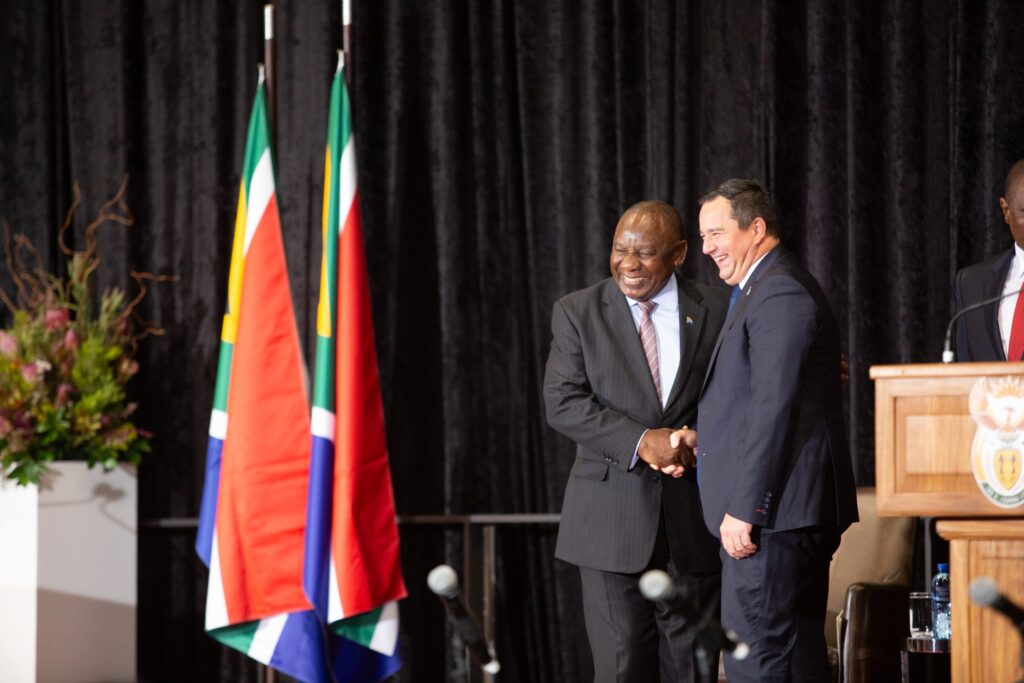Enduring Alliance: ANC and DA Navigate Political Turbulence
In South Africa, a peculiar political alliance continues to hold its ground despite evident fractures: the Government of National Unity (GNU) composed of the African National Congress (ANC) and the Democratic Alliance (DA). Initiated after last year’s elections that left the ANC with no parliamentary majority, this coalition was formed out of necessity rather than affection. However, the parties have avoided formal separation, aware that doing so might be detrimental to their chances of retaining voter support.
The Marriage of Convenience
This relationship, often described as a “marriage of convenience,” was tested recently, revealing its weak foundations. With the ANC’s historical significance in South Africa—and its role in advocating for democratic governance since 1994—the nation now observes how the ANC and DA grapple with their coalition’s residual tensions. The DA, led by John Steenhuisen, has taken a carefully considered approach by participating in the government, aiming to exert influence while simultaneously maintaining its opposition role against the ANC’s policies.
Public Displays of Conflict
Recent events have highlighted the strain between these two parties. The sacking of Andrew Whitfield, the DA’s deputy minister, has prompted Steenhuisen to express vehement dissatisfaction, asserting that President Cyril Ramaphosa acted without consulting his coalition partners on significant legislative matters affecting the economy. Notably, the controversial land expropriation law sparked outrage from South Africa’s largest trading partners, undermining investor confidence.
Steenhuisen criticized Ramaphosa for pursuing various policies without consensus, raising concerns about the GNU’s stability and effectiveness in job creation and economic growth. This discord was further emphasized when Steenhuisen had to defend the government’s position during a confrontation with U.S. President Donald Trump regarding claims of a “white genocide” in South Africa.
Economic Implications and Future Prospects
The GNU has received mixed reactions from the business community, which initially welcomed the collaboration as a stabilizing force. Yet, as political analyst Dr. Levy Ndou points out, the ideological differences between the ANC and DA persist. The ANC’s transformation agenda often clashes with the DA’s emphasis on fiscal conservatism, leading to a perpetual source of conflict within the coalition.
Navigating Internal Challenges
As the DA faces internal dilemmas—some members support remaining in the government, while others criticize the ANC’s influence—Steenhuisen has condemned apparent corruption among ANC ministers. His remarks indicate a fracturing trust within the coalition, underscoring the complexity of their arrangement.
Table: Recent Legislative Conflicts in the GNU
| Legislation | Impact | Party Response |
|---|---|---|
| Land Expropriation Bill | State’s power to seize land without compensation | DA opposes; ANC supports |
| Proposed VAT Increase | Potential economic strain on citizens | DA’s legal action led to withdrawal |
Despite ongoing tensions, analysts suggest that both parties are hesitant to dissolve the GNU, fearing voter backlash. The prospect of a breakup could result in substantial losses for both the ANC and DA in future elections, as Mr. Steenhuisen indicated that there are indeed discussions within the DA regarding the coalition’s future. The relationship between these two parties, rife with discordant notes, continues to shape South Africa’s political landscape as they prepare for the upcoming local government elections.


